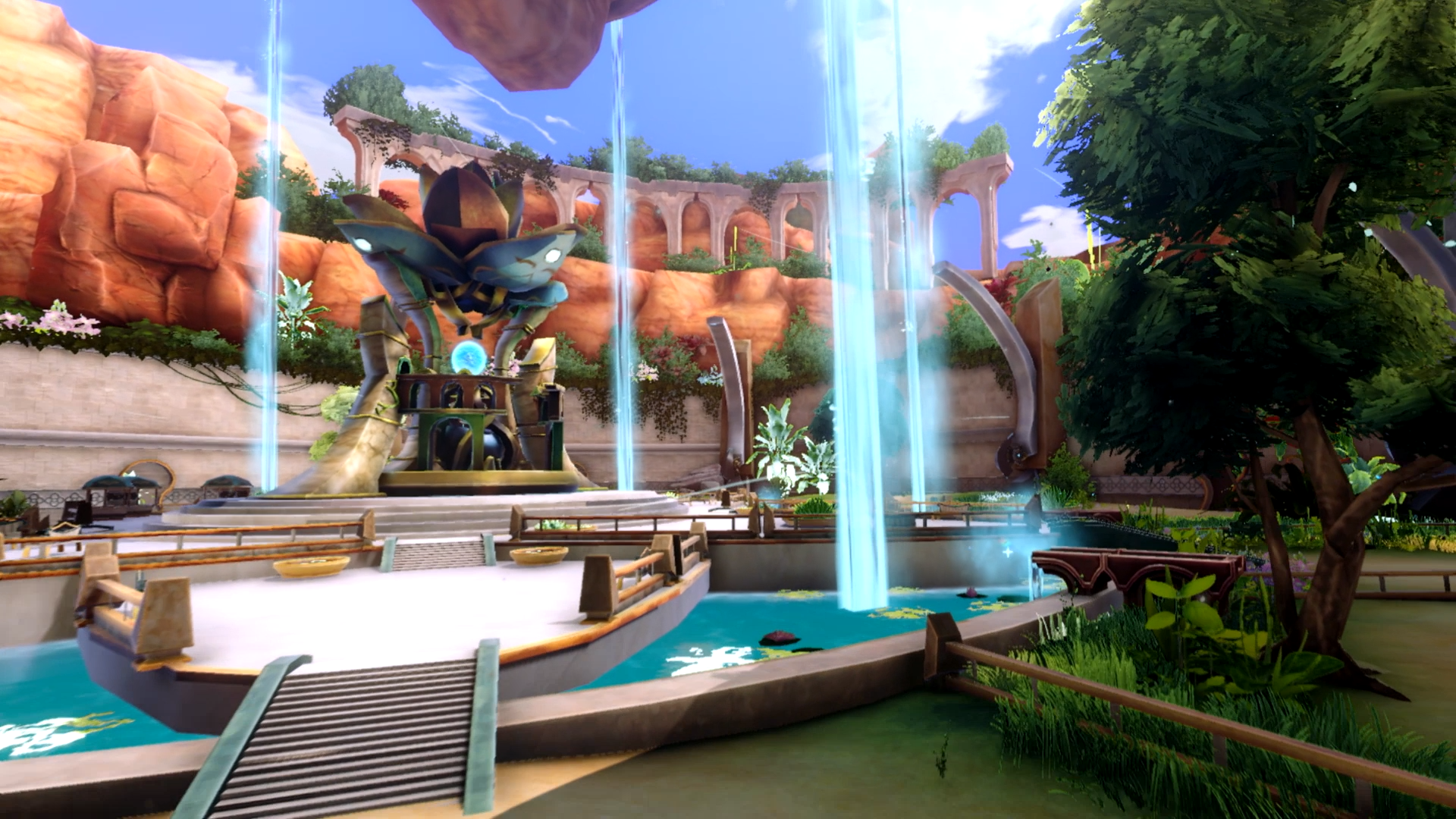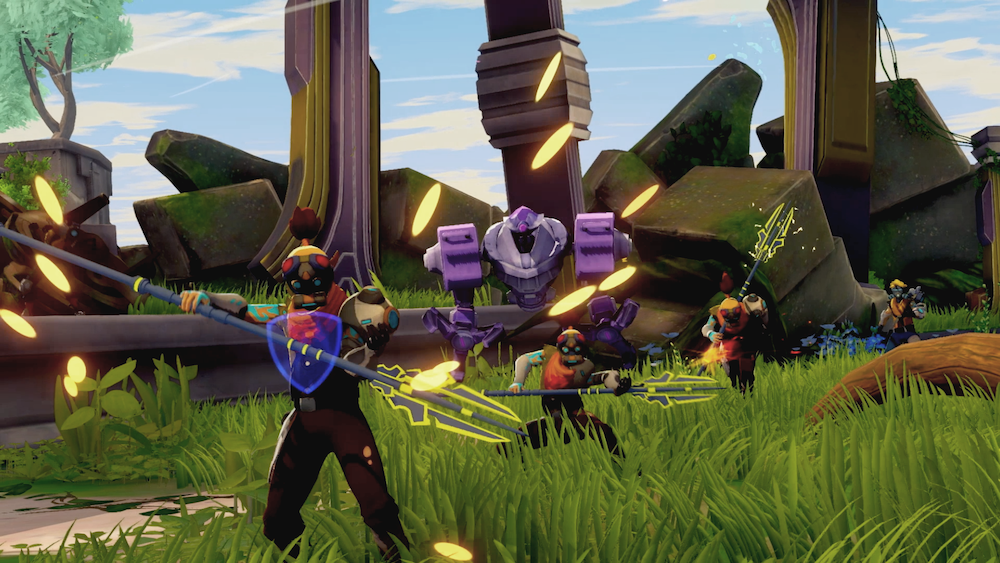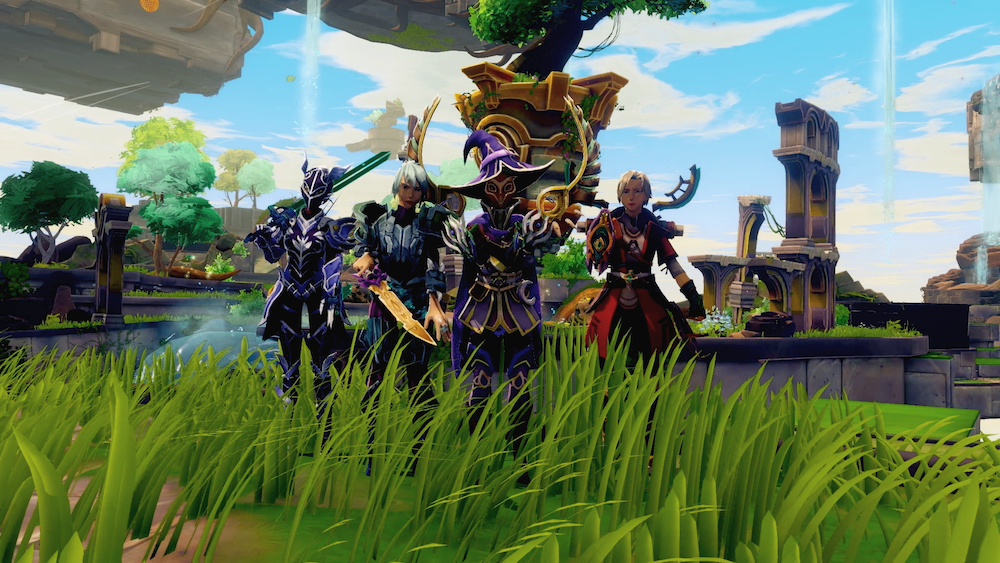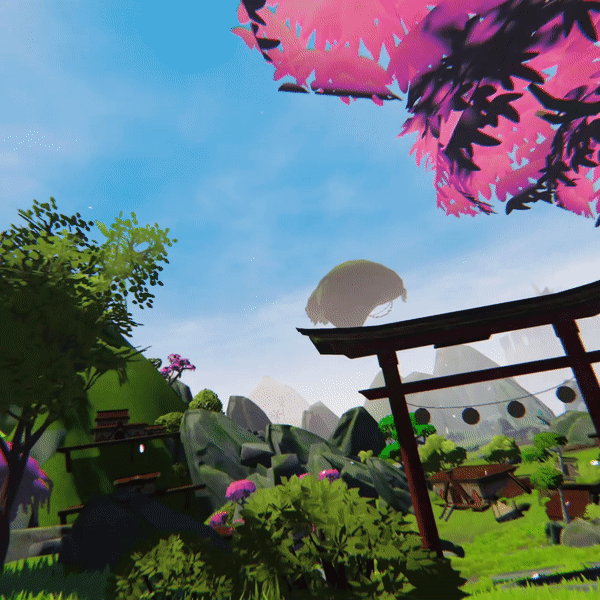About Ramen VR
Ramen VR was started by Andy Tsen and Lauren Frazier in the San Francisco Bay Area in early 2019. Together, they wanted to create an immersive Open World VR MMORPG – “the type of game they had always wanted to play but didn’t exist yet.”
With a small team, Ramen VR launched “Zenith: The Last City,” by January 2022. It was an instant hit, becoming the #1 selling game on MetaQuest and Oculus Riftthe whole Steam platform (not just SteamVR), as well as a top-selling title on PlayStation VR.
About Zenith
Not only was Zenith a top selling game across multiple platforms at launch, but it even beat out preorders for Elden Ring, and sales of Dying Light, God of War, and Beat Saber.
Zenith quickly grew a community of hundreds of thousands playing more than 2 hours per day. And, off the back of these KPIs, investor excitement grew and Ramen VR’s founders were able to raise extra capital to help them scale their studio.
“The incredible launch meant that we made all of our development costs back. And then, a couple of months after this, we successfully closed a $35M Series B round,” said Ramen VR CEO and Cofounder, Andy Tsen. “This funding allowed us to grow our team and double down on Zenith.”
Ramen VR now has over 20 employees and is still growing. “Even so, we work hard to preserve the culture that got us to this point — Do Right By The Player is and continues to be our credo,” Andy adds.
 A small glimpse into Zenith’s breathtaking VR open world
A small glimpse into Zenith’s breathtaking VR open world
Why be data-driven?
When asked why they value being data-driven and why they chose GameAnalytics to help them in this pursuit, Ramen VR’s other cofounder and CTO, Lauren Frazier, explained:
“Without data, we knew it would be difficult to identify problems and learn what changes would have the biggest impact on our game. That’s why GameAnalytics was one of the very first tools that we integrated – so that we could understand our players and make better game design decisions. We wanted to do this quickly.”

Breazy setup
GameAnalytics can be initialized with just a single line of code, making it incredibly quick and easy to start seeing useful KPIs in pre-built dashboards.
“Another big plus about GameAnalytics was the ease of integration with our Unity-based game. At its most basic level, it could be set up in just a few minutes. That was a big benefit as we wanted to get up and running quickly without having to spend too much time on integration,” said Lauren.
This is a critical advantage for developers who want to start collecting data as early as possible in the development process – even at the soft launch stage. It means that they can focus more on improving their games and less on setting up custom data processing, allowing them to iterate faster, make more informed decisions, and ultimately deliver a better gameplay experience.
 A player’s view of the VR combat in Zenith
A player’s view of the VR combat in Zenith
Powerful, out of the box
“What’s great about GameAnalytics’ dashboards is that they can be used out of the box or customized in a flexible way. That makes them really powerful,” said Lauren.
“We can easily select the KPIs we want to track and customize the visualization of the data, like for example choosing different time ranges or segmenting by event type. We can also save these custom views for later use and our team can revisit and analyze Zenith’s performance over time,” Lauren added. “Also, seeing daily active users, returning users and retention metrics on these different dashboards is extremely helpful for high level goal setting.”
GameAnalytics offers a wide range of pre built dashboards other flexible event types that track all of the essential KPIs that any studio needs to understand the health of their titles. These dashboards cover everything from player engagement and retention to monetization and conversion rates, giving game makers a clear and comprehensive view of performance, for individual games or even across large portfolios.

No leaky funnels!
When asked what other GameAnalytics features had the biggest impact for their team, Ramen VR highlighted ‘funnel’. A funnel is a visual representation of the steps a player takes to complete a specific action within a game. This can include anything from making a purchase to completing a quest.
“When working on our First Time User Experience (FTUE) in early quests, we used the data from a funnel we made to show where people were dropping off,” said Lauren. “We noticed that an outsized number of people churned at one specific quest, and that spurred us to take a closer look at it, and also connect with players to better understand the reason for churning.”
By tracking the number of players who complete each step in the funnel, it’s much easier to identify areas where players may be struggling or losing interest in a visual and intuitive way. These insights can then be used to inform design decisions, including adjusting level design and progression systems. Funnels are powerful tools and, with GameAnalytics, they only take a few seconds to set up and start seeing results.
Final advice
When we asked Ramen to share any final thoughts or advice:
“Collecting feedback from real players early and often is crucial for the success of any VR game. VR is a unique platform that relies heavily on individual interactions and the moment-to-moment experience,” said Lauren. “It’s therefore essential to get your game into the hands of real players as early as possible to gather feedback and iterate on both the larger game design and smaller interactions.”
If you’re a VR game developer, it’s important to prioritize player feedback and use tools like GameAnalytics to understand player behavior. By doing so, you can improve your game design, optimize gameplay, and create an engaging and immersive VR experience that will keep players returning day after day, for hours at a time. What better way to Do Right By The Player?
 Players banding together to form guilds in Zenith
Players banding together to form guilds in Zenith
Start your data-driven journey
Looking for an easy and seamless way to integrate analytics into your game? We’ve got you covered! Simply sign up to our free tool to get started check out our SDKs and instrument your platform of choice with a single line of code. And, as a preferred partner, we make it easy to integrate with MetaQuest via one of our official SDKs. We also provide a robust Collection API that can serve all platforms, including VR.
If you’re looking for even more flexibility in accessing and processing your game data, don’t forget to check out DataSuite. When combining our free web tool with DataSuite features you can easily set up your own custom analytics stack – in a fraction of the time and cost of building it from scratch. All with the peace of mind that your data is stored and processed with the the highest standards of information security.
So, what are you waiting for? Start your data-driven game development today.
